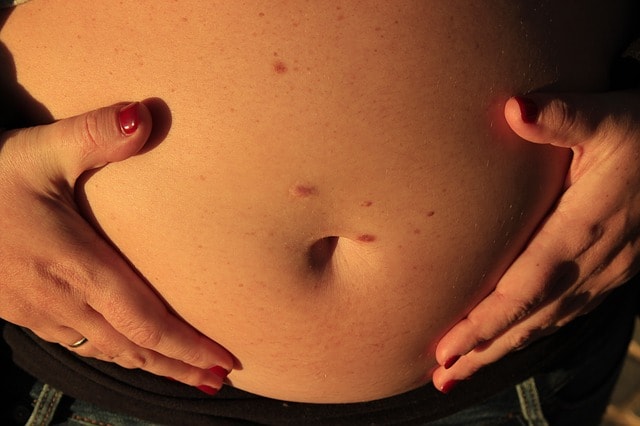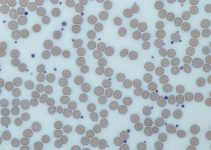 Do you suddenly feel like you have an itch that you just can’t seem to scratch?
Do you suddenly feel like you have an itch that you just can’t seem to scratch?
If you have an itchy belly button while pregnant, chances are you are not alone. Skin irritation is a problem common to most pregnant women which tends to appear in the fifth or sixth month of pregnancy as you’re starting to show, and it seems to get more noticeable as the belly keeps growing.
However, the area around your belly button may also itch because of other reasons including poor skin hygiene, dermatitis, hives, bacterial infection or contact dermatitis (piercings, creams, and cleansers)
How to Tell Whether You Have an Itchy Belly Button
If you experience soreness, redness on and around the belly button, pain, tingling, draining or release of a whitish substance from your belly button every once in a while, inflammation, moistness and burning around the belly button due to contamination, and fever brought about by the itchy navel (this is, however, a non-particular side effect).
What Are The Causes Of An Itchy Belly Button?
Contact dermatitis
Once your skin comes in contact with an allergen or irritant substance, a cascade of inflammatory reaction occurs; this phenomenon is called contact dermatitis and is different in etiology and intensity in different people.
These items may include garments, creams, detergents and clothing cleansers. Some women might get contact dermatitis due to contact with a belt clasp or the pants’ metal snaps.
Contact dermatitis normally itches and occurs as a red rash that sometimes blisters.
Treatment: Avoid the irritant or allergen. Use a topical OTC (over-the-counter) anti-itch cream that contains a minimum of 1% hydrocortisone, or swallow an over-the-counter oral antihistamine such as:
Chlorpheniramine (Chlor-Trimeton), cetirizine (Zyrtec) or diphenhydramine (Benadryl)
Eczema
Eczema also referred to as atopic dermatitis, is a condition which makes the skin in and around your belly button red and itchy.
Treatment: Eczema has no cure. Use a gentle soap to wash your belly button then rinse and dry thoroughly. If you have an ‘outie’ navel, moisturize it twice every day. Avoid moisturizing an ‘innie’ belly button- rather, keep it dry.
Bacterial infection
Sweat, dead skin and lint can collect in your belly button leading to bacterial growth and infection. Sometimes, the bacterial infection can result in a foul smell, tingling, and a yellowish or brownish discharge.
Treatment: Your health practitioner might prescribe antibiotics such as cephalosporin (Keflex) or penicillin. You should keep the belly button dry and clean.
Yeast infection
Candida is a form of yeast which commonly grows in dark, damp areas of your body and it can cause candidiasis- a yeast infection. Candidiasis can cause an itchy, red rash and a white discharge from your belly button.
Treatment: Use an antifungal cream such as clotrimazole (Mycelex, Lotrimin), miconazole nitrate (Monistat-Derm, Micatin) and ensure to keep the belly button clean and dry.
Insect bite
Spiders, mosquitoes, fleas, and bedbugs all have bites that resemble tiny, red bumps.
Treatment: Use an over-the-counter topical anti-itch cream that contains at least 1% hydrocortisone, or swallow an OTC oral antihistamine such as loratadine (Claritin, Alavert), fexofenadine (Allegra), or brompheniramine (Dimetane)
Infected navel piercing
A belly button piercing can get infected, just like any other body piercing. Pregnant women are however advised to remove their belly button piercings once the belly starts to grow, because the piercing may cause an infection or even come out.
Treatment: If you still have the piercing in, remove it and keep the navel area clean and dry. Use topical antibiotics such as Duospore or Neosporin. Your health practitioner may also prescribe oral antibiotics.
What Home remedies can cure an itchy belly button?
Home remedies are sometimes sufficient to cure that itchy belly button. It is always advisable that you try not to scratch your skin as enticing as it might be since incessant scratching only worsens the condition.
If the condition becomes severe, you should consult your doctor or try more therapeutic conditions. This is very critical since severe itching might signify another hidden condition.
- Moisturize – Apply a delicate, light, and scent free cream frequently and generously to control the itching.
- Apply pink calamine lotion which works really well in extreme cases.
- You can use a humidifier in your room since it keeps the skin from drying out. You should, however, proceed with caution since the humidifier can also trigger hypersensitivities and spread germs if utilized indiscriminately.
- Douse it up- taking a delicate cereal shower with warm water can be effective for dry skin. You should ensure that the water isn’t very hot since it can dry out the skin considerably more.
- Apply Vitamin E oil which is extremely recuperating and great to use on sensitive areolas after pregnancy.
- Make a paste of turmeric powder and water and then apply it directly to that itchy area. Thoroughly wash off the paste once it’s completely dry.
- Soak a cotton ball in warm calendula tea, then press it against your belly button for twelve minutes
- Apply a combination of coconut oil diluted in tea tree oil to the itchy area a couple of times each day.
- Warm salty water can be used to treat infections on your belly button. That warmth of the warm water increases blood flow to the affected part while the salt absorbs the dampness within the navel helping you recuperate. Additionally, salt water works as a disinfectant.
- Ensure to keep the affected area dry and clean – To prevent further growth of microbes and advance healing in the affected areas, it is essential to keep that zone dry and spotless.
How Do You Prevent An Itchy Belly Button?
- To avert any diseases in your belly button, it is vital that you:
- Ensure that the area around it is kept clean. You ought to wash it correctly and thoroughly.
- Trim all the body hair around your belly button to create an environment which is less susceptible to the growth of any organisms. Hair trimming also ensures that no hair tumbles off and gets into the umbilicus tract.
- You should also ensure that you live a healthy lifestyle and strengthen your immune system (most pregnant women have a weaker immune system) to prevent an itchy belly button.
Image: Pixabay



